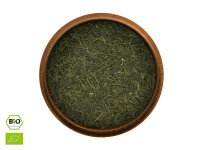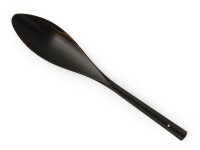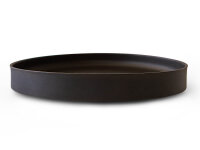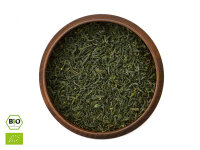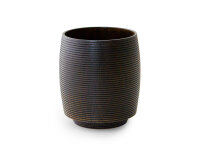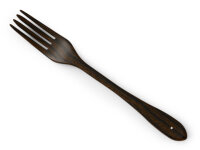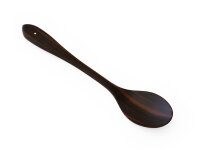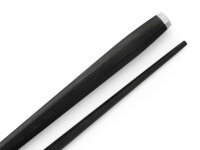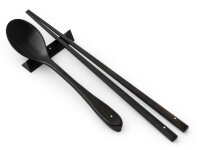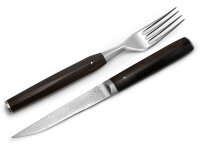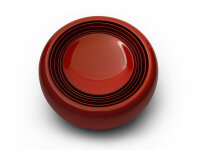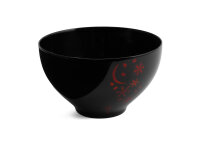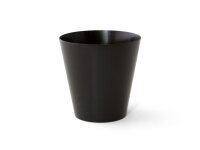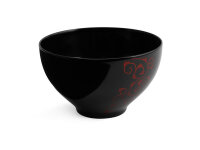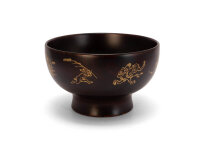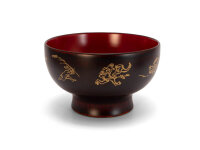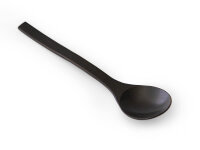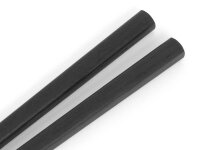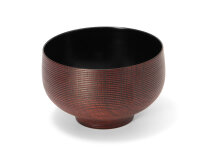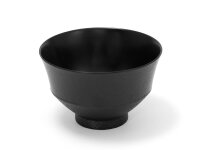"Oryoki bowl set Nakajima black, 6 pieces"
The manufactory Koubou Nakajima
Is it coincidence? The workshop of noble wooden vessels was founded in the year of his birth, 1969. About 20 years later, Takehito Nakijima starts his practical training in the workshop of which he is the head today. After a short time Takehito's work is already divided into two areas. To this day, his love of practical work is fresh and alive. And yet, to speak of Takehito would be to tell only half the truth. Because his creativity and competence as a multi-award-winning designer are just as much parts of the soul of the manufactory. The many prizes he has received in Japan but also in Europe for his work, ultimately led to the fact that today he is also in demand and active as a juror for art exhibitions.
Oryoki, Buddha bowls by Takehito Nakijima
In the Oryoki bowls minimalism is traditionally applied. And it is hard to express this idea more beautifully. The clarity of forms stylishly and with extraordinary elegance shows the way to a high consciousness. Each of the six pieces of the set is a work of craftsmanship, with the potential to delight your senses. But the bowls are also practical. Whether as a daily meal set, as used by Buddhists, or to set the stage for a delicious menu. We are very pleased to offer you these artisan masterpieces of Takehito.
As a daily commodity of a monk, an oryoki must always prove its robustness and durability. The varnish must not come off, otherwise the bowl is unusable. Takehito Nakijima uses only noble, meticulously selected and long-dried wood. With an Oryoki, which was manufactured by the hands of a genuine master, one has its whole life long joy.
That you will own with our Oryoki really genuine Japanese Oryoki, you can recognize e.g. by the form. Real oryoki consist of 6 parts. For the small meal, traditionally three parts are used for rice, soup and pickled vegetables. For the main meal, all five food bowls are taken, and the sixth, smallest, is placed under the largest bowl. In the original oryoki, the outer rim of the largest bowl is strongly curved outward. Which is supposed to make eating easier. And all the bowls fit nicely inside each other - like the Russian matryoshka.
Tradition says that only shoyin cuisine is eaten in oryoki. 1. No animal products. 2. Nothing that smells strong, so no garlic, no onions, no leeks. 3. No dairy products. Today one sees this in Japan of course no longer so narrowly.
All products are unique, slight deviations from the picture are therefore possible.
Care
Wash by hand. Ideally, avoid fork, knife and direct sunlight for a long time.

